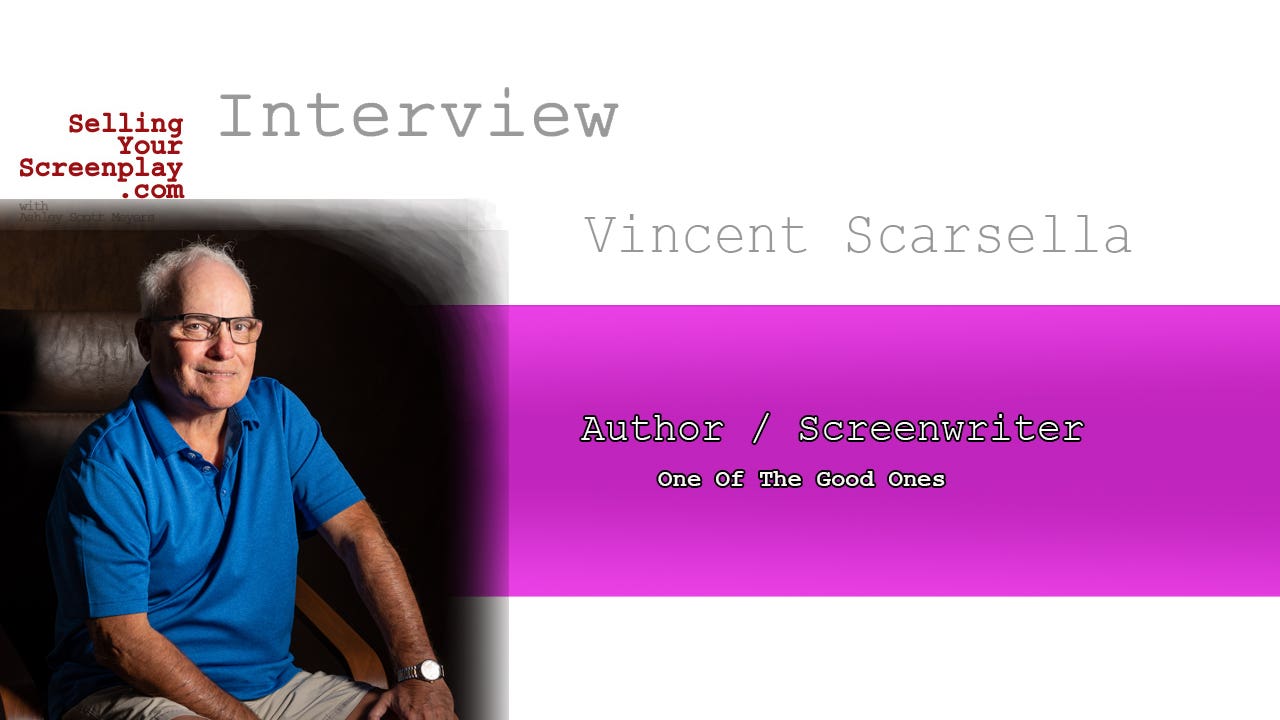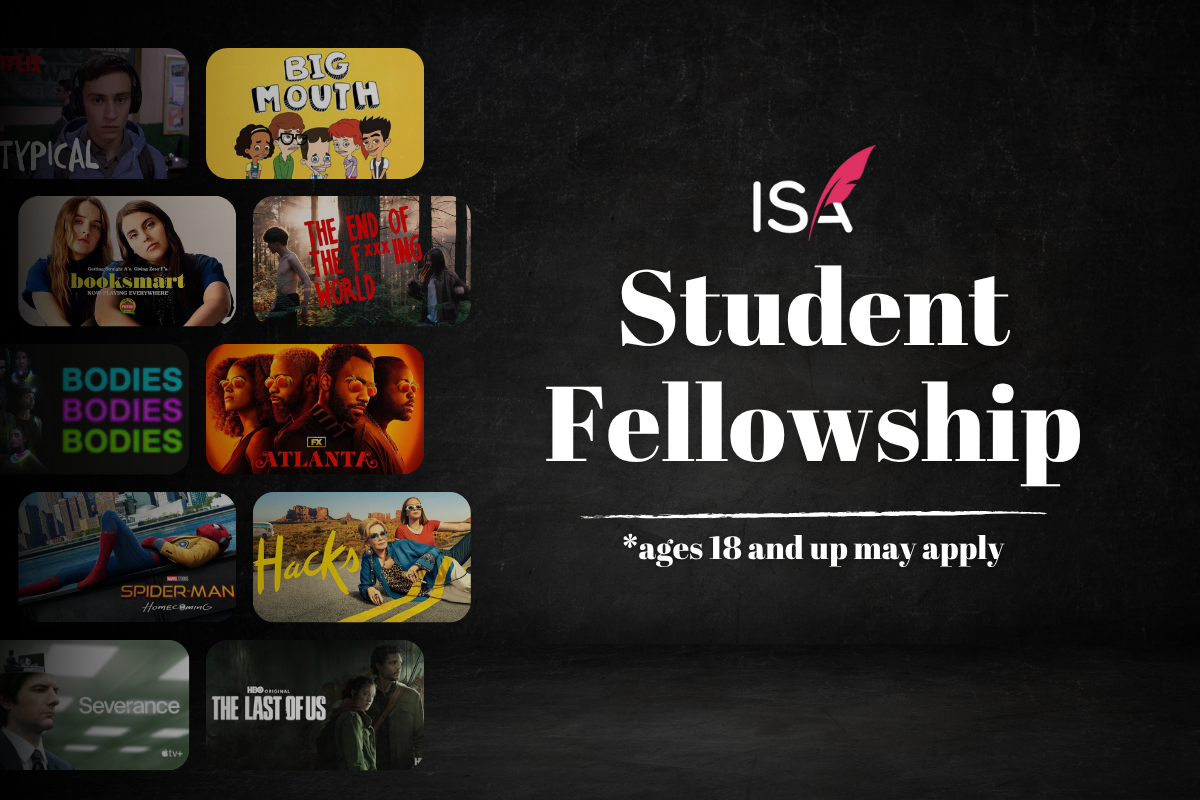A Screenwriting MFA Online! National University’s Innovative New Program
As mentioned in the current issue of Script, National University is now offering a unique new program in which students can earn an MFA in Screenwriting almost completely online.
As mentioned in the current issue of Script, National University is now offering a unique new program in which students can earn an MFA in Screenwriting almost completely online.
The San Diego-based National (which also has campuses in Los Angeles and other locations in California and Nevada) is a fully-accredited, not-for-profit school geared primarily toward working adults. The classes are short (each one runs for approximately one month) and therefore quite intensive. To make it more convenient for the students -- most of whom are time-challenged and have very busy schedules -- many of the classes can be taken all or in part online (NU was an early adopter of online programs). For much of its 40 year existence (the school was founded in 1971), National focused primarily on business and education-related courses and degrees. In recent years, however, the university opened a School of Media and Communications, through which it began offering an MFA in Digital Cinema.
The screenwriting program came about as the result of a casual comment made by Bettina Moss, the holder of an MFA in Screenwriting from the Columbia University film school and a former film development executive for HBO who had just entered academe after spending nine years at the cable giant. Moss had previously taught at the UCLA Extension and had come to National to teach in the School of Media and Communication.One day, while chatting with her dean, Moss offhandedly remarked: “Y’know, if you really want to be a film school, we’ve got to have a screenwriting program.” Much to her surprise, the dean responded by saying, “Okay, go do it.”
As she set out to execute her charge, Moss realized that she was facing an uphill battle: “I’m realistic -- National University has no reputation as a film school because it didn’t have a film school. So when people think of going to film school, they‘re not going to generally go ‘Oh, let me find obscure film schools.’ So there’s no way I can compete on reputation because there is no reputation other than the one hopefully that I’m building … but what I can compete on is the quality of the program and who is teaching it. So I said to myself, ‘Okay, well, this is not going to be the Bettina Moss School of Screenwriting, because that would be idiotic. This has to be informed by people who genuinely have presence in the business,’ and therefore I made it my goal -- because I wanted the program to hold its own against any of the schools that have the reputation that they do -- to be right up there.”
She began by hiring a top-notch faculty of experience industry professionals -- current faculty members include:Erik Bork (screenwriter/producer), Bobette Buster (screenwriter/script consultant), Christopher Canaan (screenwriter/producer), Elaine M. Chin (development executive), Flint Dille (video game writer/designer), Asher Garfinkel (development executive), Steve Ginsberg (screenwriter), Nick Harding (screenwriter/ producer), Aaron Iverson (screenwriter), Sean Jablonski (screenwriter/producer), Janet Jeffries (development executive), Chris Kyle (screenwriter), James Napoli(screenwriter), Robert Potter (story analyst), Jeanne Rosenberg (screenwriter), Sebastian Twardosz (development executive /producer), and Alex Ben Block (senior editor at The Hollywood Reporter) -- and worked with them to design a very rigorous program.
Students in the program are required to take a series of core and advanced courses including: Narrative Structure in Film, Screenwriting, Film History, The Business of Screenwriting, Adaptation Workshop, as well as a series of screenwriting practica and graduate electives. (Because of National’s intensive format, students only take one class at a time. As a result of Moss’ desire to make the program as thorough and as in-depth as possible, each class runs for two to three months rather than National’s usual one.)
Early in the program, students are required to take Screenwriting I and Screenwriting II, both of which consist of workshop sections and practica. These classes function as something of a screenwriting boot camp -- in the two months of Screenwriting I, the students write an outline and a first draft screenplay. In Screenwriting II (which also runs for two months), they rewrite that script. (The program does not have a separate application process beyond general admission to the university, so Moss considers these first two classes to be the MFA program’s application process -- because if students can’t hack the rigorous workload, they usually drop out.) Students are required to complete two more screenplays (another original an adaptation) during their time in the program.
All of the classes are taken online through the Internet platform eCollege. Moss explains how it works: “You sign into a portal […] on the eCollege site. You come into what is essentially a website for each course and it takes you through however many weeks the course happens to be. You click on each module and that’s the information you need for that week.”
Knowing that it can be easy for students to get lost in cyberspace, Moss wanted each class to have a degree of interactivity to keep students engaged and connected, so each class has a discussion board on which students are required to answer questions and respond to their fellow students’ postings weekly. Some of the core classes also hold discussions in a Skype-like, video-chat format. Students also have private one-on-one consultations (via telephone or video chat) with their screenwriting professors as they work on their screenplays.
As rigorous and comprehensive as these classes are, Moss felt that for the program to have sufficient relevance, it was crucial that it have an on-site component. “You can’t just […] take classes in cyberspace and then think you know what the business is,” Moss states. So, at the mid-point of their program, the students are required to come to Los Angeles for what Moss characterizes as “a two-week boot camp on […] the reality of the business of screenwriting.”
During these “residencies,” a group of 10 to 12 students visit studios, prodcos, agencies, management companies, and the Writers Guild, where they meet with industry professionals in their offices and learn about the realities of development and the business. Moss feels this component of the program is essential because when “I got out of film school, [I] didn’t have a clue” as to the mechanics of the industry. She felt that it was the responsibility of an effective film program to “ground people with what they need to know.” So far, the program has hosted three residencies and has taken students to Sony, Warner Bros., Dreamworks, Universal, Benderspink, ICM, APA. They have also met with screenwriters such as Stanley Weiser, Carl Ellsworth, Ben Ripley, and Brian Miller. The results, Moss reports, have been “fun and interesting.”
To further this real-world training, during the residencies students also receive guidance in crafting pitches for their scripts. At the end of the two-week period, they are then required to pitch to Moss and other professional development executives so that they can gain crucial experience and feedback about this process. Before they leave the program, students are also required to create a marketing plan for their projects. This plan is unique to National’s program and came about because Moss wants students to be able to answer the crucial “what next?” question prior to leaving school and entering the real world.
Moss began developing the National MFA program in 2008 and it launched in 2009. Since then, approximately 70 students have entered the program and the first cohort will graduate this summer. Moss is very pleased with the high quality of the work she has seen so far, which she attributes in part to her students’ wide variety of life experiences, which Moss feels provides material for some very interesting stories.
The program’s students range in age from 22 to55 and come from all over the U.S. (including the military) and from countries around the world. “Almost all of them have full-time jobs and a very good portion of them have families, so I have a lot of folks who never would be able to pursue this degree if they had to go to brick and mortar campuses,” Moss reports. The Internet makes this diversity and access possible, which is something that pleases Moss enormously: “What I think is one of the unique pieces about the program is that you literally can get into a very high quality program that is quite rigorous and be able to reasonably do your degree and [all you] have to [do is] find two weeks vacation and come to L.A., which most people can manage.”
As the program enters its third year, it continues to grow with the addition of a television writing track and a transmedia writing course. While acknowledging that the program’s profile is still low (but starting to grow), Moss is extremely proud of what she and her colleagues have accomplished: “In terms of reputation, can National compete? No. Not yet. But in terms of what we’re offering as an MFA in screenwriting? Absolutely -- and we may be better.”
Ray Morton is a writer and script consultant. His many books, including A Quick Guide to Screenwriting, are available online and in bookstores. Morton analyzes screenplays for production companies, producers, and individual writers. He can be reached at ray@raymorton.com. Twitter: RayMorton1







